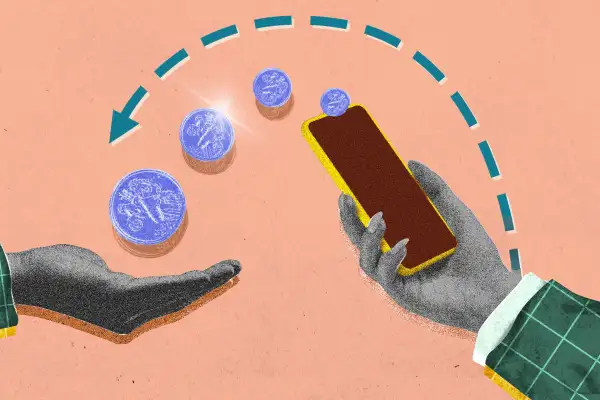Why the Recent Rise in Stock Buybacks Is a Good Sign for Investors
Money is not a client of any investment adviser featured on this page. The information provided on this page is for educational purposes only and is not intended as investment advice. Money does not offer advisory services.

Stock buybacks reached a six-year high as companies flush with cash are signaling confidence in the economy — and in their own financial outlooks.
More than $383 billion in authorized share repurchases have been announced so far in 2024, marking a year-over-year increase of 30%, the most since July 2018.
Enormous buyback plans have been announced for 2024 by companies across sectors, from tech giants like Apple (a record $110 billion) and Alphabet ($70 billion) to oil majors like Shell ($3.5 billion) and BP ($1.75 billion).
Six years ago, a surge in stock buybacks by companies like Apple, Wells Fargo and UnitedHealth proved to be indicative of ongoing strength in the market: The S&P 500 index has increased 88% since 2018. Here's what investors can expect this time around.
Earnings season buyback announcements surge
First quarter earnings season officially ends on May 31, and over the past month and a half, billions of dollars of share repurchase plans have been announced. Most recently, Robinhood saw its stock jump 6.72% since declaring a $1 billion buyback on May 28.
On May 15, Yum! Brands — the owner and operator of KFC, Taco Bell and Pizza Hut — announced a $2 billion repurchase plan. One week later, Lam Research, an ancillary company operating in the semiconductor industry, informed shareholders it was buying back $10 billion of its own stock.
Since the start of the first quarter's earnings season, more than $175 billion in share repurchase plans have been announced.
According to Goldman Sachs strategists, it's now estimated that by the end of 2024, companies will have repurchased an estimated $924 billion worth of their own shares, with preliminary estimates for 2025 exceeding $1 trillion for the first time.
What do stock buybacks mean for investors?
Stock buybacks, officially called share repurchase plans, haven't always been a tool in the corporate toolbox. Prior to their legalization by the SEC in 1982, they were considered a form of market manipulation.
Buybacks have since exploded in popularity, with companies of all sizes repurchasing their own shares, thereby demonstrating fundamental strength in their finances. Like dividends, share repurchase plans are funded using free cash flow, or the money companies have on hand after paying operating expenses and capital expenditures.
Free cash flow (FCF) is a commonly used metric for gauging the wellbeing of companies' financial statements, and a sudden increase in stock buybacks suggests that these companies' shares are poised to continue their strong performances. Basically, companies buy shares of their own stock because (1) they are armed with FCF and (2) they believe it's a smart investment at that time.
Through share repurchase plans, companies decrease the number of outstanding shares, which in turn:
- Increases the value of remaining shares
- Increases future earnings per share (EPS)
- Decreases price-to-earnings (P/E) ratios
Collectively, these three results of stock buybacks signal to shareholders that companies' underlying businesses are well-equipped to face unforeseen challenges, can weather economic downturns and will provide a greater return over the course of the fiscal year. A company that steps up stock buybacks is viewed as one that's confident in itself.
While a buyback announcement alone shouldn't be used as a measure of a stock's strength, its foundation in fundamental analysis (e.g., free cash flow, EPS and P/E ratios) can be used to identify the likelihood of short- and medium-term performance.
More from Money:
Alphabet, Now a $2 Trillion Company, Will Start Paying Dividends to Shareholders
Gold vs. Stocks: As Both Hit Record Highs, What's Performing Better for Investors?

